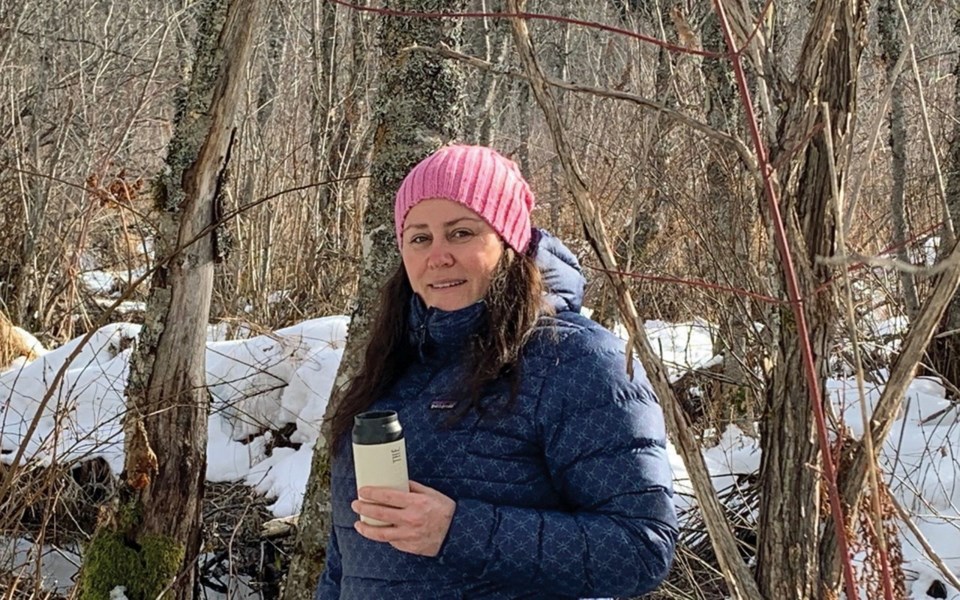Flipping and flopping in bed all night? Having a hard time falling asleep due to (check all that apply): too much coffee; too much booze; too much on your mind; too much on your plate; too much "face" time, meaning the face of your insidious little blue-light gizmos, especially late at night; hormonal or other physical changes; all of the above?
If you're not getting enough sleep, or enough quality sleep, welcome to the world of one in three Canadians. The most recent data we have (released 2017 and gathered for studies for the Canadian Health Measures Survey 2007-13) shows that only about two-thirds of us are getting enough sleep.
Canadians aged 18 to 64 years, who are recommended to get seven to nine hours of sleep a day, reported averaging 7.12 hours a night, just squeaking over the minimum. A full third reported getting less than the recommended amount—and that's the time you're actually sleeping, not just lying in bed trying to wish yourself asleep. (The study notes that people tend to over-estimate the time they actually sleep, so if you're reading this and counting on your fingers the number of hours you figure you sleep each night, keep that in mind.)
One of the more interesting pieces is that even with the hormonal disruptions of menopause and perimenopause, which often interfere with our usual sleep habits, women reported getting more sleep than men (7.24 hours vs. 7.0). However, everyone reported getting less sleep than in 2005, when we slept 8.3 and 8.1 hours for women and men, respectively.
As for older Canadians, 65 and up, they reported averaging 7.24 hours of sleep each night, with about one third saying they get fewer than the recommended seven hours. Scientists also suggest that people in this age category get no more than eight hours a night. So, yes, too much sleep is bad for you, too.
But not getting enough sleep, enough good sleep, is no laughing matter.
"Insufficient sleep (short duration and poor quality) is associated with a range of adverse health outcomes, including obesity, type 2 diabetes, cardiovascular disease, injuries, all-cause mortality, depression, irritability, and reduced well-being," writes the health report's authors.
It also makes people grumpy, short-tempered, and prone to talking too much, driving too fast, and generally getting aggressive too easily and sick too often because nerves and immune systems are shot to hell. And then you drink even more coffee. And so it goes, on and on, people getting more and more wired when all they really want to do is r-e-l-a-x and sleep.
One of the biggest myths is that booze will help you in that department. Not.
According to the Sleep Foundation, alcohol interrupts everything from REM sleep, the most restorative type of sleep, to your circadian rhythms. And if you want another reason to help you cut down your boozy habits, Australia's health officials have just ratcheted back the amount of safe alcohol consumption from two standard drinks a day to 10 standard drinks a week, or 1.4 a day.
"... I also see people who used to drink too much but who have now cut back or stopped. Their sleep has improved, their mood has improved, their blood pressure has returned to normal," said Kate Conigrave, chair of the Aussie committee looking into alcohol consumption, in a recent Guardian article.
But if you want to really tackle drinking habits that are troubling your sweet dreams, kick some coffee out and try substituting it with tea.
It's complicated because of all kinds of variations, from where your coffee beans or tea leaves are grown, to the way they're processed and brewed, but your average eight-ounce cup of coffee contains anywhere from 95 to 165 milligrams of caffeine, while your average eight-ounce cup of black tea contains 24 to 48 mg. Green tea is in the lower range of that, at 25 to 29 mg. of caffeine and, of course, many delicious herbal teas don't contain any caffeine at all.
But there's more to it than that. Just ask Isabelle Rogers, Whistler's master tea crafter who started, and heads up, one of the best tea companies on the planet, Namasthé Tea.
"Teas with caffeine—which are lovely because I drink a lot of them and I sleep really well at night—what you try to do is have them in the morning," says Isabelle.
"Teas actually have quite a bit of caffeine in them. But it's the way that you're drinking the tea and the way it goes through your body that's a bit different from coffee. So you don't get that big jolt—that big hit that hits your adrenals, and makes you go up and then crash down, and up and crash down, which is what makes people really tired, and then they need another coffee."
Another good point from Isabelle: "Tea doesn't have that same effect because it has an amino acid in there called L-theanine, which is a blessing in the way it dispenses caffeine and how it works."
L-theanine, which a lot of people buy in health food stores to help them sleep, is known for reducing anxiety and creating a state of "relaxed wakefulness," just what the doctor ordered for today's stressed-out world.
Yes, the days are short and dark, and all these lousy storms don't help. We all need a lift. But are the things you're trying to pick yourself up with really crashing you down?
Think about it and, in the meantime, know that Isabelle has brewed up an herbal tea mix just for the occasion—Spirit Soar.
What more can I say?
Glenda Bartosh is an award-winning journalist who, like her mom, never could handle caffeine.




